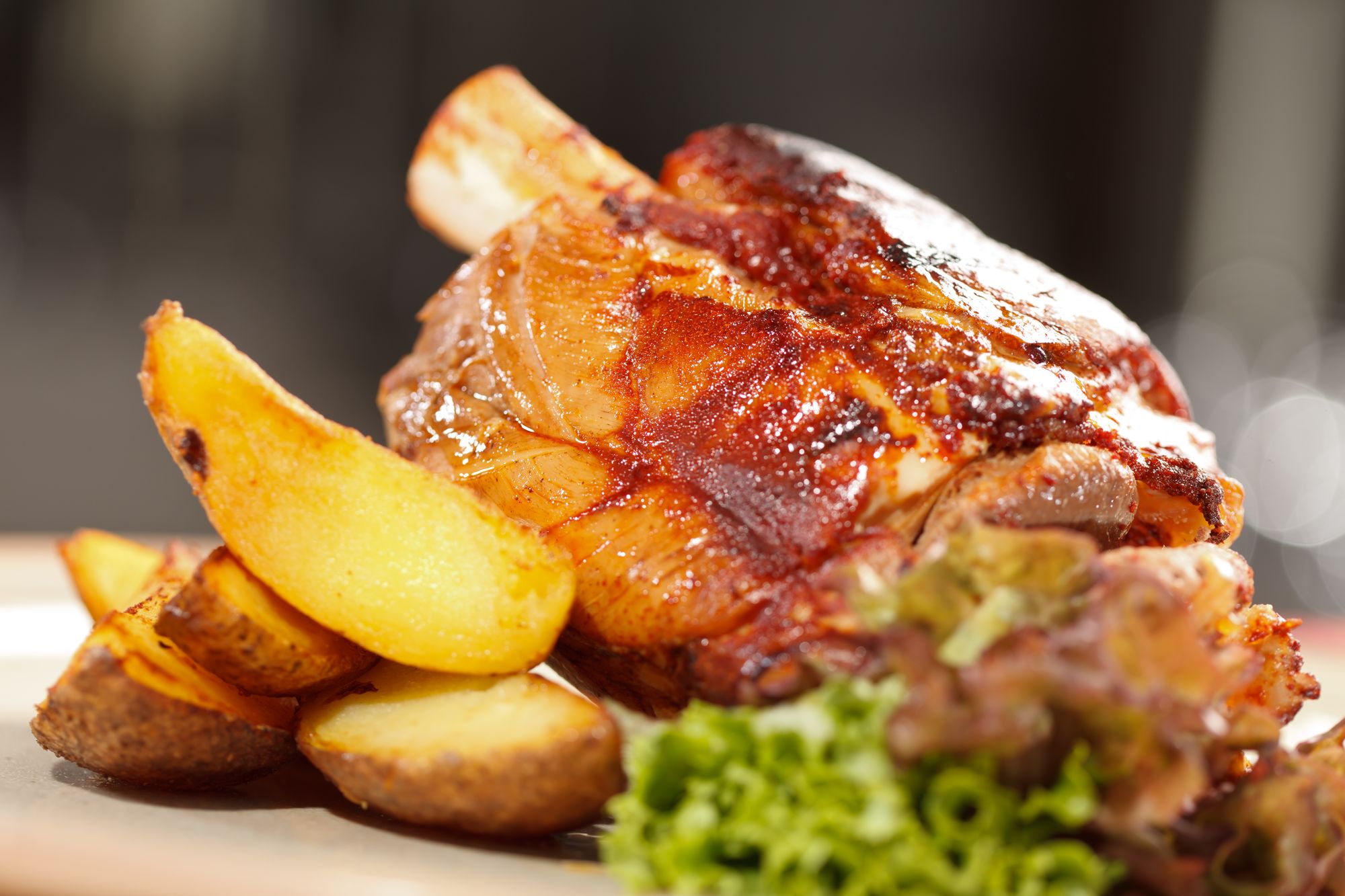The Meaty Mystery: What Cut is Pork Knuckle?
Pork knuckle is a cut of meat that is shrouded in mystery and confusion. With its many aliases like pork shank, ham hock, and pork hock, it’s no wonder many home cooks aren’t quite sure what pork knuckle really is.
I’m here to clear up the pork knuckle confusion once and for all! Read on to learn exactly what part of the pig pork knuckle comes from, how to identify it, where to buy it, and most importantly, how to cook this underrated cut to succulent, fall-off-the-bone perfection
Let’s start by solving the mystery of what part of the pig pork knuckle comes from. Pork knuckle is cut from the upper portion of a pig’s hind leg, right around the area where the leg bone and ankle meet This area contains a good amount of fat and connective tissue, which results in incredibly moist and flavorful meat when cooked properly.
The knuckle or shank itself is comprised of leg and thigh muscles interlaced with fat and collagen. When cooked low and slow, these elements melt together to produce fantastically tender meat that just falls off the bone.
Since pork knuckle goes by so many different names, it can be tricky to identify. Here are a few tips to spot the real deal:
-
Look for a portion of leg with an exposed bone end. This is the signature pork knuckle shank bone.
-
The surrounding meat should be very well marbled with fat.
-
The skin should be thick and may still have coarse hair on it.
-
For German recipes in particular, choose cuts from the rear leg which will be meatier.
-
Avoid pre-cooked or brined pork knuckles if your recipe calls for fresh.
Examining the unique bone shape and the generous fat marbling will ensure you get the right cut of pork knuckle for your recipe.
Finding pork knuckle can require a bit of searching, since it’s not as readily available as pork chops or bacon. Try asking your local butcher, visiting German or Chinese markets, or ordering online from specialty meat companies. Seeking out high-quality heritage breed pork knuckle is worthwhile for the exceptional flavor.
Now let’s get to the best part – how to transform pork knuckle into succulent, melt-in-your-mouth meat! This tough but flavorful cut requires low and slow cooking to break down all that tasty fat and collagen.
Try roasting pork knuckle for 4+ hours surrounded by aromatics like onions and carrots. Braise pork knuckle in wine or broth until fork tender after 3-4 hours. Or pop it in a slow cooker with sauce ingredients for 8+ hours. However you cook it, pork knuckle needs extended cooking times to become tender.
When pork knuckle has reached fall-off-the-bone status, it makes a perfect pairing for sides like sauerkraut, mashed potatoes, or egg noodles. And don’t forget to sip on a nice German beer or ale!
The next time you come across the mysterious pork knuckle, don’t be intimidated. With the knowledge to identify this cut and transform it through low and slow cooking, you can be assured of meaty, mouthwatering results. I hope I’ve cleared up the pork knuckle confusion! Now get cooking and enjoy this fabulously flavored cut.

How to cook pork knuckle
Carve the knuckle and roast or grill it in one piece. Serve it with a variety of sides, like sauerkraut and other charcuterie. Ideally, prepare the knuckle a day in advance and let it rest in its own juice.
Pork knuckle is suitable for everything from German to Mexican recipes and, not least, Asian seasoning. If the rind is prepared crispy (in the oven), it can also be eaten.
Split pea soup is a delicacy prepared the Swedish way using pork knuckle with the bone remaining inside.
Boil or grill whole (or both) and serve with sauerkraut as “schweinehaxe”.
How to Butcher an Entire Pig: Every Cut of Pork Explained | Handcrafted | Bon Appetit
FAQ
What meat is pork knuckle?
Is pork knuckle same as pork knee?
Is pork knuckle a hock?
What cut of meat is the knuckle?
